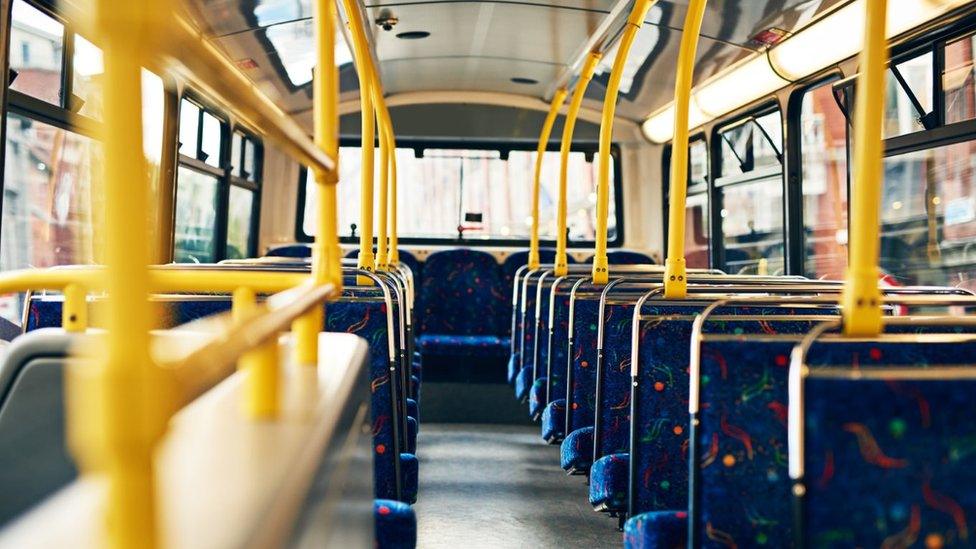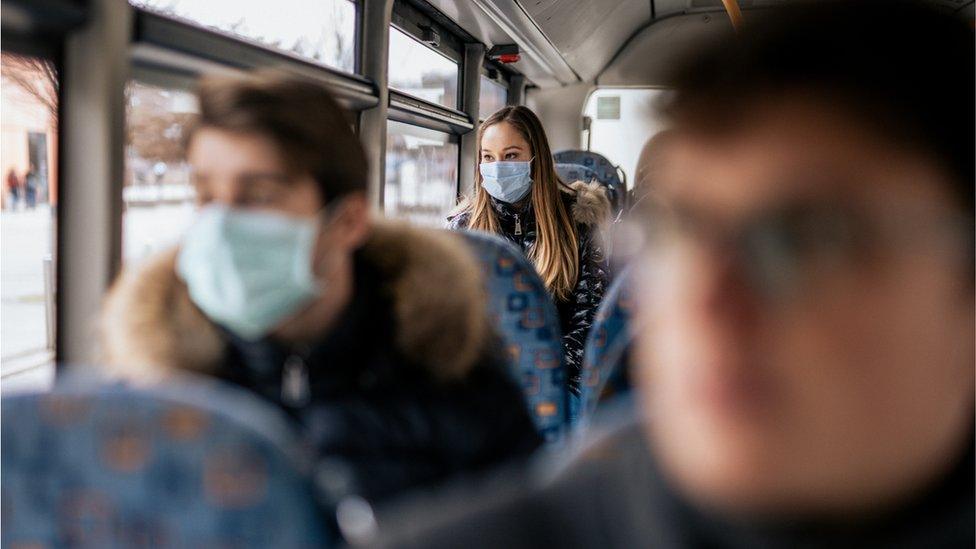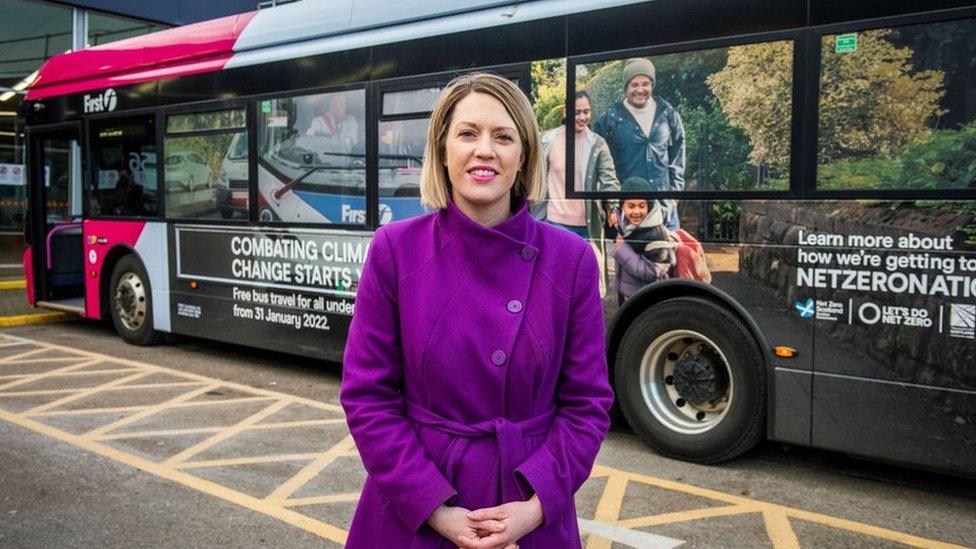Warning over bus fare hikes if Covid grant ended
- Published

Bus operators have claimed fares will rise and services slashed if its Scottish government funding is cut.
A temporary grant put in place to support the industry through the Covid pandemic is due to end on 9 October.
The industry said soaring costs and passenger numbers not returning to pre-pandemic levels meant taking the grant away would have "severe consequences".
But the Scottish government said it was facing "an extremely challenging financial landscape".
A Transport Scotland spokesman said it had provided up to £210m in emergency funding to support bus services during the pandemic.
The Confederation of Passenger Transport (CPT) Scotland - a trade association representing bus and coach companies - said passenger numbers were on average about 80% of pre-pandemic levels.
For concessionary passengers it was worse with 60% to 65% fewer trips being taken by older free pass holders.
In June, Scottish ministers extended the Network Support Grant (NSG) Plus to October, external with £25.7m of funding.
CPT Scotland surveyed its members on the likely actions they would take should NSG Plus end in October.
The survey - which included responses from First Group, Stagecoach, Lothian Bus and McGill's - found many services would become commercially unviable and bus firms said this would result in the following:
Fare rises of over 10% across the Scottish bus network
Service cuts of around 14% but as high as 35% in some areas
The delay or cancellation of all zero-emission vehicle investment
The loss of at least 200 jobs

The impact of the Covid pandemic on the bus industry comes amid a longer term trend of declining passenger numbers
CPT Scotland director Paul White said: "The network support grant is critical in supporting the bus network and insulating passengers from the consequences of the operational challenges affecting all public transport modes.
"If the grant concludes in October then there will likely be severe consequences on services and fares levels, and our ability to progress shared objectives such as growth in free travel and decarbonisation will be undermined."
Mr White said Scotland's bus passengers are "uniquely disadvantaged" by the ending of the grant and contrasted it with the ScotRail fares freeze which is in place until March next year.
CPT believes £44.85m is required for a six-month extension of the NSG Plus scheme and has argued it could be paid for by what it describes as a likely sizeable underspend in the 2022/23 budgets for free bus passes.
Conservative MSP Graham Simpson, who raised the issue at Holyrood this week, said NSG Plus had kept bus services going as passenger numbers slumped during the pandemic.
He added: "Passengers haven't returned in any great numbers.
"It is vital that support is extended again as is happening in England or we will see services go and fares rising. That's a recipe for disaster."
Scottish government funding
A Transport Scotland spokesman said the Scottish government was facing "an extremely challenging financial landscape".
He added: "Operators understood in June that this funding was not indefinite and that many of the challenges faced by the sector are not of the Scottish government's making.
"The emergency budget review will further consider support for all sectors in government within the current fiscal context."
The spokesman added that the Scottish government provided up to £210m in emergency funding to support bus services during the pandemic and the latest Scottish Budget allocated £410m in funding for bus services and concessionary fares.


Scotland's bus network is suffering from its own version of Long Covid. Passenger numbers plummeted through the pandemic and they've still not recovered.
The bus industry got massive state support to nurse it through the lockdown - £210m since June 2020, say Transport Scotland.
Now that some of the subsidy offered to get the industry through is set to be withdraw.
But bus operators are still struggling, they carry just 80% of the passengers they used to and revenue is down.
So they warn that a further loss of funding will be catastrophic - with a wholesale withdrawal of services.
You may ask - what's the point of funding bus services through the pandemic, only to see them cancelled now?
Buses offer a lifeline during a cost of living crisis and now that lifeline's being stretched to breaking point.

- Published20 January 2022

- Published27 June 2022

- Published31 January 2022
